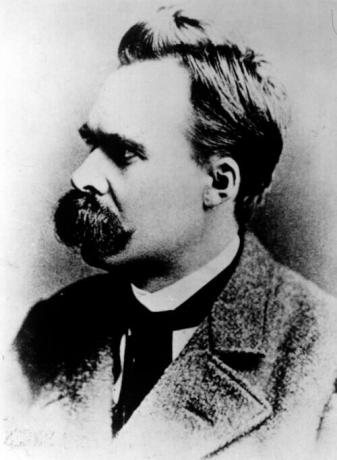Socrates he is considered the patron of philosophy, so his name is a landmark that divides Greek philosophy between the pre-Socratic and Socratic periods. In the pre-Socratic period, however, there is a vast and important philosophical production that goes back to the beginnings of Philosophy, to the beginning of a search for a rational thought that did not accept the fanciful explanations offered by mythologies as unquestionable truths.
During this period, the first Western philosophers sought to observe nature to understand how it works and, thus, attribute a cause as the first origin of the entire universe (cosmos in Greek). This gave rise to the cosmology, which is an attempt to understand the origin of everything from the Note, gives argumentation It's from logical reasoning, leaving aside fancy explanations such as those provided by Greek mythology.
All philosophers of that period tried, in some way, to attribute a origin of the universe, using arguments. Some pointed to material and natural elements as the origin of everything; others cited immaterial elements, and some even said that the origin was found in a mixture of infinite and indeterminate elements.
As ancient Greece was not a single sovereign state founded on the same territory, but a mixture of city-states (polises) different and autonomous regions that were located in close but separate regions, the communities founded in these cities were many different. With this difference, there was also a change in the ways of thinking of those people: there was a common effort to look for something new - the rational thinking – but each did it in his own way.
For this reason, different schools of rational thought emerged in pre-Socratic Greece that proposed to solve the same problem – what is the rational origin of the universe – in different ways.
Thus, we can divide pre-Socratic thinking into:
-
Ionic school: originated in the region of Ionia, present-day Turkey, it was the stage for the first philosopher, Miletus Tales. The thinkers also composed it Anaximander, Anaximens, both from Miletus, and the philosopher heraclitus, from the city of Ephesus. All these thinkers formulated similar hypotheses for the emergence of the universe. arche (principle or origin) would be some specific or indeterminable element. For Thales, the arche it would be the water; and, for Anaximander, the apeiron – infinite and indeterminate element present in everything. Anaximenes indicated the air as the beginning, and Heraclitus, the fire, which gave rise to everything and affected everything with its movement and inconstancy.
Do not stop now... There's more after the advertising ;)
Pythagorean school: originated in the region of Magna Grecia, now southern Italy, was founded by Pythagoras of Samos. Pythagoras, an important Greek mathematician and philosopher, attributed to numbers, more specifically to the number one and to the point in geometry, the origin of the entire universe. The Pythagoreans founded a kind of universal mystic which attributed the origin, ordering of matter and souls and universal organization to mathematics.
Eleatic school: originated in the Greek city of Elea, where part of southern Italy is also located, had as main representatives Parmenides and his disciple, Zeno of Elea. These two philosophers strove to present that the world would not be composed of movement, as Heraclitus wanted, but of an immutability that constitutes essences. Matter, according to Parmenides, deceived by appearing to change, and the essences of material objects would remain identical.
Pluralist Philosophers: argued that the universe was originated by the composition of several principles. The following are considered pluralists:
empedocles: for whom the origin of everything would be in the four primordial elements (earth, fire, water and air);
Anaxagoras: for whom the origin would be in an aggregate of infinite parts, distributed in different ways in each being. This process he called nous;
Leucippus and Democritus: the founders of the atomist theory, which attributed the origin to the joining of invisible and indivisible particles, called atoms.
All pre-Socratic schools presented shared and condensed the beginnings of Greek philosophy and the search for rational thought in the West.
by Francisco Porfirio
Graduated in Philosophy
Would you like to reference this text in a school or academic work? Look:
PORPHYRIO, Francisco. "Pre-Socratic Philosophical Schools"; Brazil School. Available in: https://brasilescola.uol.com.br/filosofia/escolas-filosoficas-pre-socraticas.htm. Accessed on June 27, 2021.

